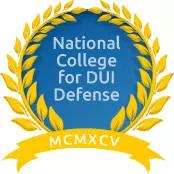A conviction for a
driving while intoxicated (DWI) offense in Texas, whether it is the first or not, will bring about predictable penalties, such as
license suspension and high fines paid to the state. But simply understanding these forms of punishment does not reveal the entire picture or DWI process in the state. To become fully knowledgeable, and therefore better prepared to defend your case and driving privileges, it helps to know about a few special considerations and unique circumstances related to Texas DWI laws.
Here’s five more things you should know about DWI cases and convictions in Texas:
- BAC limits not necessary: Most people know that if you are an adult driving with a blood alcohol concentration (BAC) level at 0.08% or greater, Texas law enforcement will consider you illegally intoxicated. However, your BAC level is somewhat “just a number” to the police. If your BAC is over below0.08% but an officer believes you were driving recklessly because of it, then you could potentially be arrested for a DWI all the same. DWI can also be proved by showing you did not have the normal use of your mental or physical faculties.
- Felony DWI Charges: Texas will consider your DWI charges to be much more egregious if someone was hurt (intoxication assault) or killed (intoxication manslaughter) due to your alleged drunk driving, or if there was a high chance of someone becomes hurt or killed. These types of DWI convictions will carry steep penalties that can change from case-to-case.
- CDL suspension: A driver convicted of a DWI violation while operating a commercial vehicle – a semi-truck, postal service truck, certain pieces of farm equipment, etc. – can lose their standard and commercial driver’s license (CDL) for one year, effectively taking them out of their job for that long. If the commercial vehicle transports hazardous materials, the CDL suspension will be increased to three years.
- Refusing
chemical testing – blood and breath tests conducted at the station, not necessarily a field sobriety breathalyzer test – could trigger an automatic license suspension, even if never convicted of a DWI. You will have just
15 days to contest the suspension by requesting an administrative license revocation (ALR) hearing, during which you will need an attorney to argue that your license should not be suspended. Refusing a chemical test and not fighting the automatic suspension will take away your license for up to 180 days, compared to a 90-day suspension if you consent to but fail a chemical test. - SR-22 insurance: After any DWI conviction, you may be required to purchase SR-22 car insurance, which serves as additional proof of your financial responsibility. You can expect that your insurance premiums will rise after buying SR-22 insurance.
You should also carry your SR-22 proof of insurance on your person whenever you drive, as you may be told to show it to a police officer if you are pulled over for any reason.
Tyler Flood & Associates provides dependable and personally-crafted criminal defense representation to Texans accused of driving while intoxicated. Contact our Houston DWI defense attorney to set up a free initial consultation, during which we can start to discuss your defense options.









